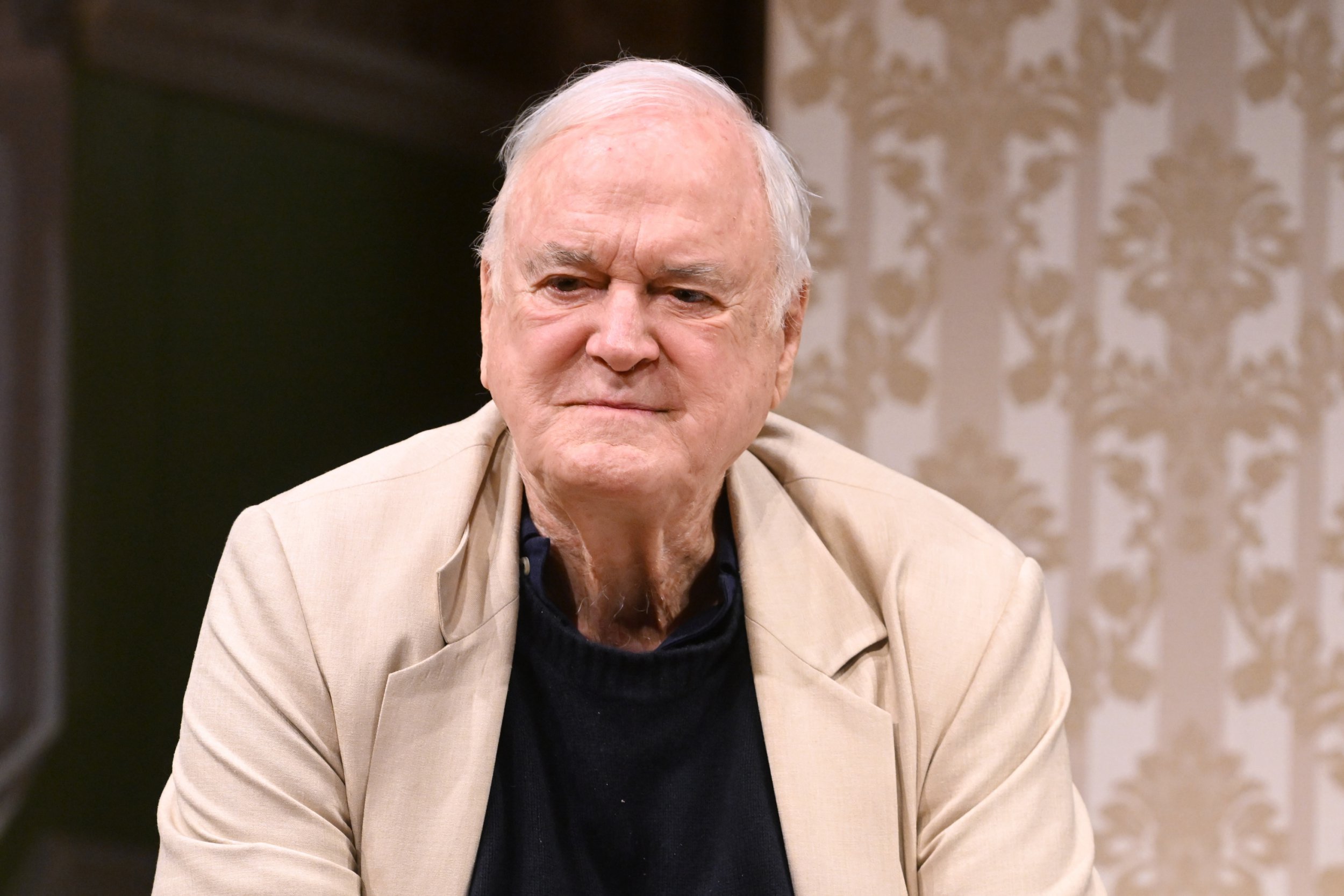
has shared his verdict on the state of today’s comedy and, it’s safe to say, he is not a fan.
The Fawlty Towers actor, best known for playing , said he struggled to name two shows produced today after recalling a recent article he’d read talking about all the 30 or so comedy shows in the 1990s.
‘Now I don’t know that people can name one or two comedies, and why is that? I don’t know,’ he said (seemingly never having seen the wonders of Daisy May Cooper and This Country).
‘I think because everything is changing so much now people get anxious, and when people are anxious they behave in a ratty sort of way and are more likely to get literal-minded. I don’t know what to do about it,’ John said. ‘Uninvent the internet,’ he quipped.
John made the scathing remarks ahead of his new play based on Fawlty Towers hitting the West End.
The production stars a brand new cast, but with one very: the original creator, writer and the man behind one of the BBC’s most recognisable comic characters in Basil Fawlty.
Adapted to the stage by a now 84-year-old John and directed by Caroline Jay Ranger, the show sees three scenes – The Hotel Inspector, The Germans and Communication Problems – from the 12-episode sitcom merge together into a play with an all-new finale coined by John.
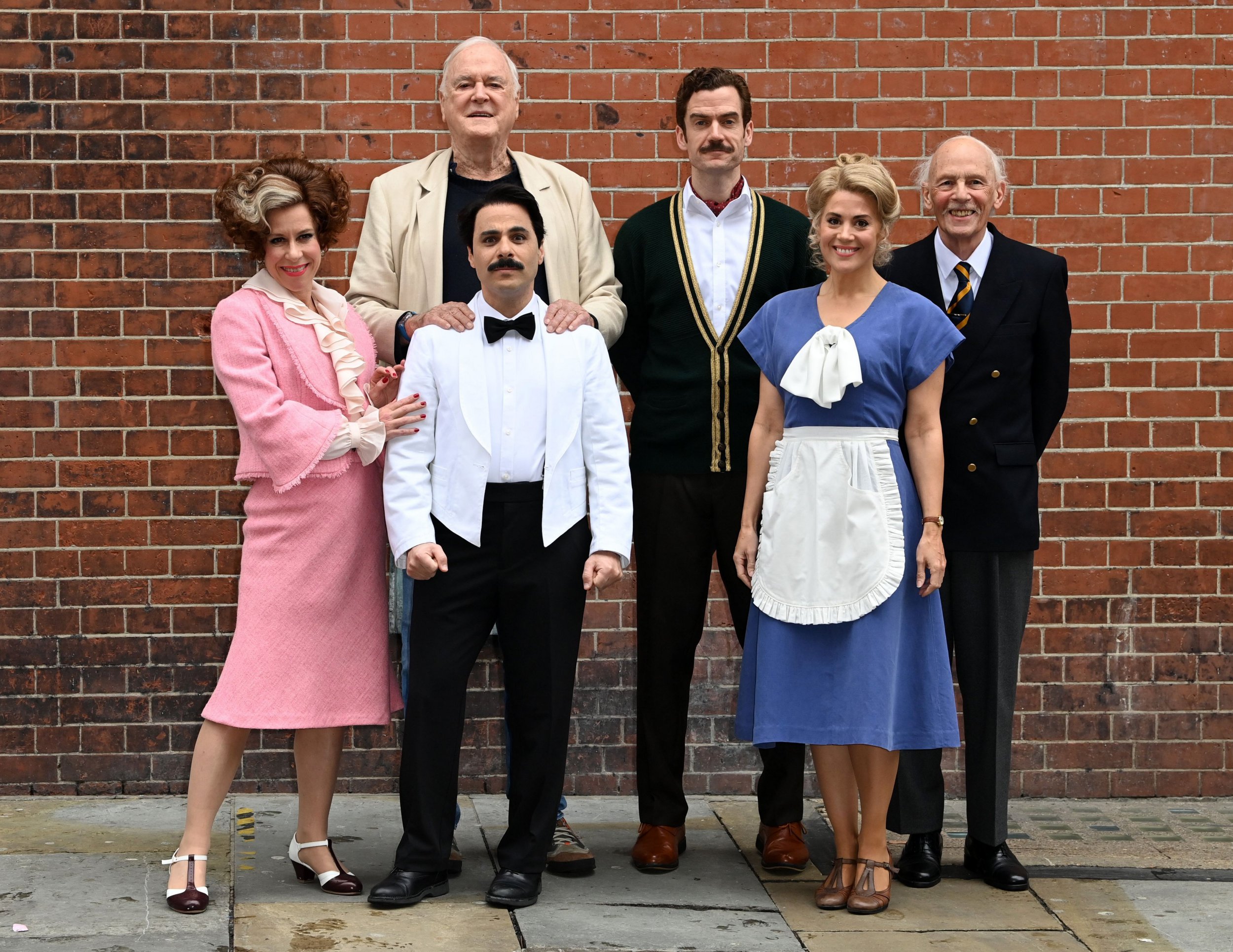
At the press opening of the play – which is premiering at the Apollo Theatre on Shaftesbury Avenue on Saturday May 4 – John talked about the enduring love of the TV series.
While the show has come under fire in recent years for its use of racial slurs – particularly in The Germans episode – John has revealed he thinks the character of Basil is the element that keeps it popular, even now.
However, he also described Basil as ‘lower-middle class,’ which some may well disagree with – given he owns a hotel.
‘I think Basil exemplifies a certain kind of probably lower-middle class figure, like the people that I grew up with in Weston-super-mare, and had shoe shops, do you know what I mean?’ John told Metro.co.uk and other outlets today.
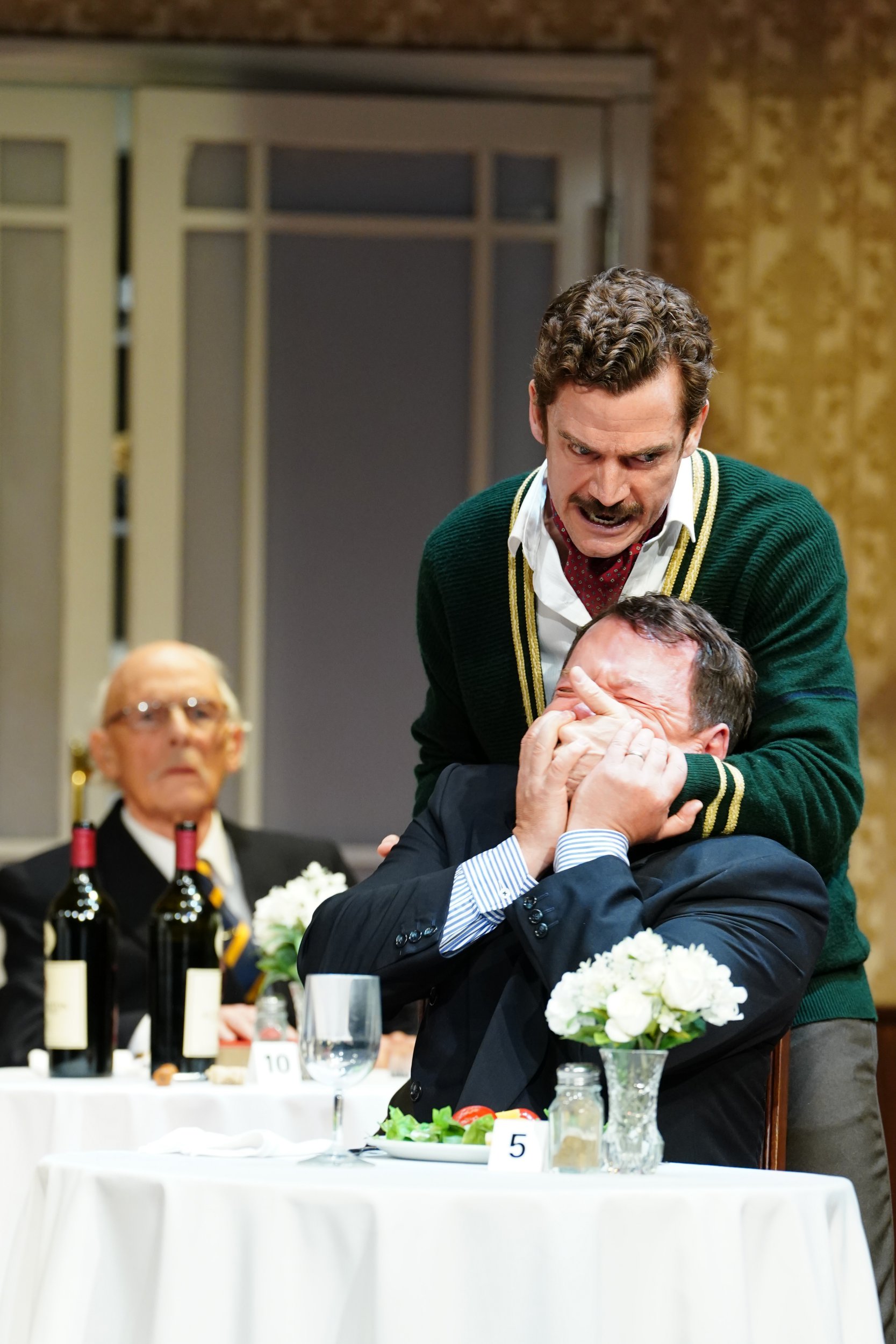
‘They weren’t middle-middle class, and the fact that those people always think it’s a terrible loss of face to be angry,’ he explained, nodding to Basil’s famous disposition which is a constant state of repressed rage.
‘They’re all keeping up with the Jones’,’ he added, explaining: ‘That’s the rather sad thing about our culture now is that we’ve been affected by the American view, if you’re not rich or famous you’re a bit of a failure.
‘But no one in Weston-super-mare felt that, in my day they thought they were all having perfectly decent lives, and were nice and polite and kind to people.
‘I just think the key to that is repression, because people like that don’t want to lose their temper and everyone is trying to be kind and polite but actually being angry isn’t funny, but suppressing anger is funny.’
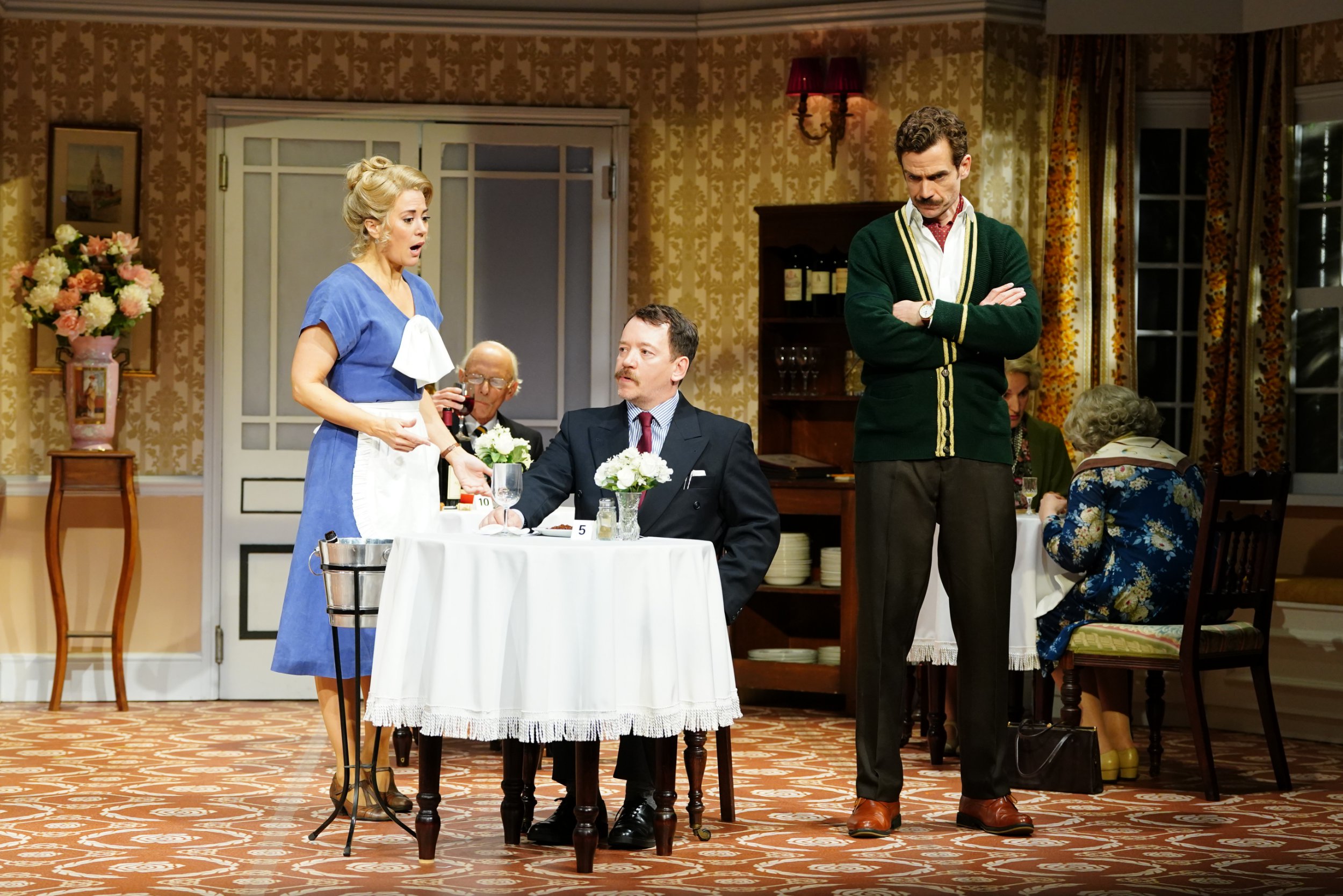
The Monty Python actor and writer touched upon how they have adapted the show for a modern audience.
‘There was a scene where Major used a couple of words you can’t use now, racial slurs it would come under, so we took that out,’ he said.
‘There’s always a problem with comedy that you deal with the literal minded,’ he explained, adding: ‘The literal minded don’t understand irony. That means if you take them seriously, you get rid of a lot of comedy, because literal minded people don’t understand metaphor, and they don’t understand irony, and they don’t understand comic exaggeration.’
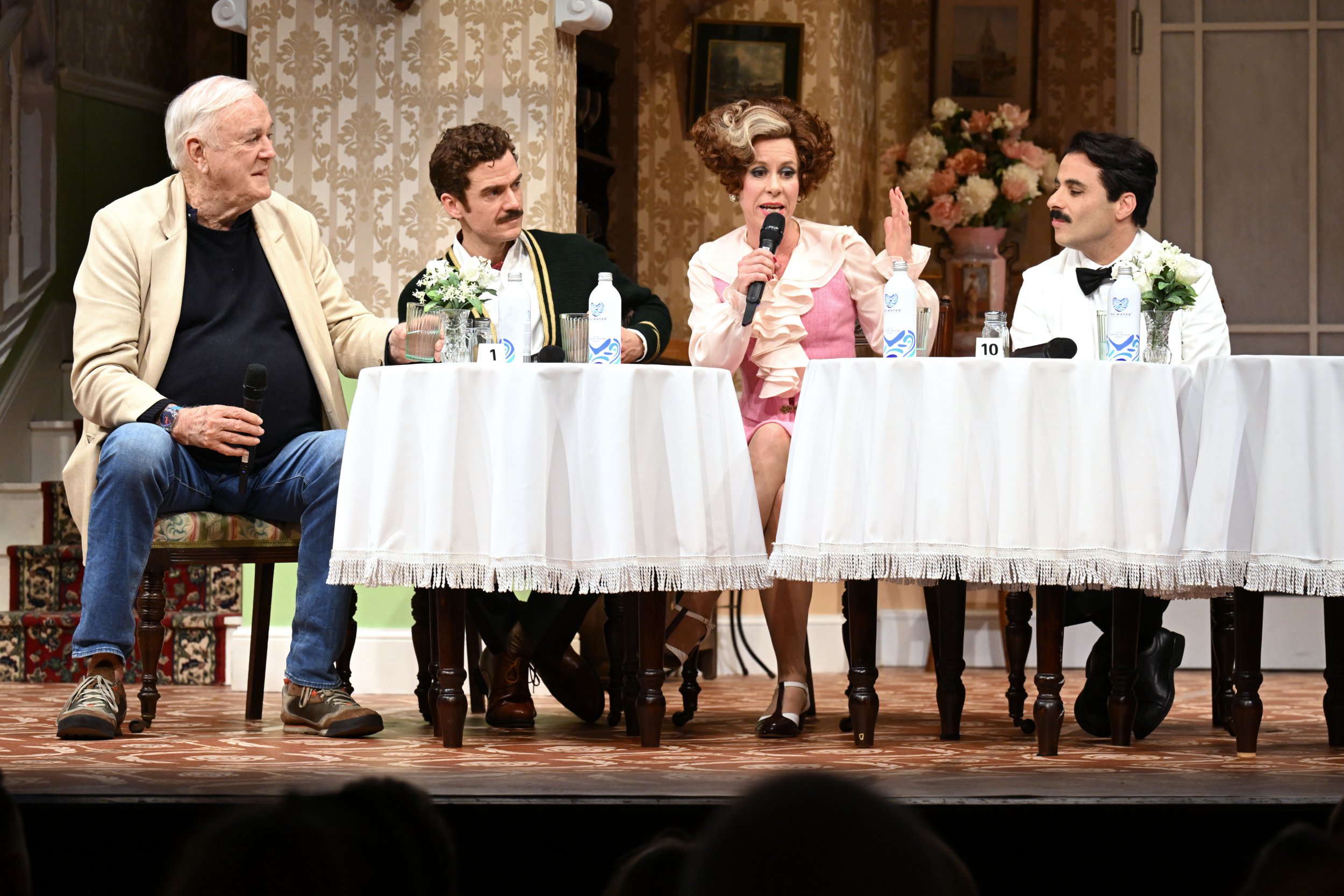
With a sneak preview of two scenes from the new play, it becomes clear it is very true to the TV show – although actor Adam Jackson-Fox (Basil) and John both say the veteran actor interfered very little in this reimagining of the distressed hotel owner.
The physical comedy is definitely there from these initial taster, and as is the chaotic energy of the TV show – but 70 years on, and it will be interesting to see how audiences react to some of the more dated jokes, like when Basil chases Sibyl (Anna-Jane Casey) from behind with his hands outstretched as if to strangle her
Perhaps I’m ‘literal minded’.
But Fawlty Towers’ enduring appeal lies in the very human hilarity of things going wrong, not in jokes that divide us: this play’s success will hang in the quality of the farce, and as John repeated: the actors’ ability to play with their roles on stage.
John also heavily hinted audiences should attend in June.
‘I think it will be tremendous in June. In June we would have figured out where the laughs are,’ he said.
‘On a farce you want to sit in the middle of the stalls, not too close, then you can see all the things going on at the same time,’ he said, adding: ‘That’s why I would rather watch a farce in the theatre than anywhere else.’




















